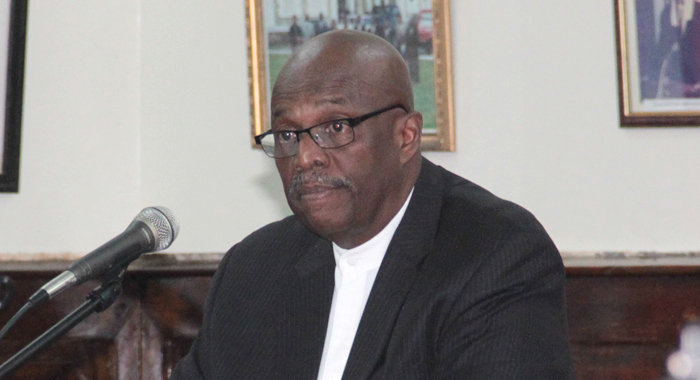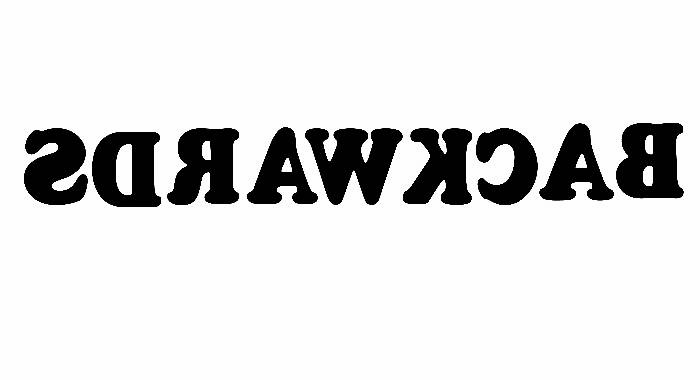The opposition New Democratic Party on Monday said that if assented to, the Cybercrime Act 2016, passed in Parliament on Friday, would take St. Vincent and the Grenadines “several steps backward”.
The law was passed amidst protest by the opposition and regional and international freedom of expression advocates that it would have a chilling effect on free speech.
The opposition has also argued that the law contains vague language and excessive penalties and some clauses are targeted at critics of the government who use the internet to engage in political activism.
The government has rejected these allegations.
The NDP did not participate in the select committee that reviewed the draft. Their absence was part of an on-going protest of the results of the December 2015 general elections, which they say the ruling Unity Labour Party stole.
In a statement on Monday, the NDP’s president and Leader of the Opposition, Arnhim Eustace noted that for the act to become working law, it must be published in the Government Gazette and assented to by the Governor General.
“If that process is completed, the Ralph Gonsalves regime will have succeeded in taking St Vincent and the Grenadines several steps backward: back to the dark days of colonialist repression; back to the days of failed authoritarianism in the Caribbean; back to the voicelessness of slavery,” Eustace said.
“It is inconceivable that in the second decade of the 21st century, an administration that claims to be progressive; an administration that claims to be interested in creating a modern society; an administration that claims to seek to protect its citizens, is forcing through — in the face of widespread, bipartisan and non-partisan international opposition — a backward, archaic, draconian and dangerous law; a law that is riddled with practical and philosophical inconsistencies and discrepancies; a law that induces fear in the populace; a law that infringes upon, and indeed, damages, constitutional rights and freedoms,” he said in the statement read during his weekly programme on NICE Radio.
Shortly after the law was passed on Friday, four regional and international press freedom organisations, including Reporters Without Borders (RSF), issued a joint statement expressing alarm.
By Monday, the number of international organisations signing the joint statement had increased to 22.
Eustace said: “Condemnation of this law has come from far and wide.”

He noted that before the passage of the law, the RSF called parts of the bill “extremely damaging”.
“The Canadian-based Centre for Law and Democracy says the government was ‘rushing ahead with
seriously problematical legislation’ which might punish ‘perfectly innocent browsing activity’.
“And the International Press Institute said that the law opens ‘a back door to silencing unwanted opinions or punishing journalistic work that makes… politicians, uncomfortable’,” Eustace noted.
The NDP leader said he would like Vincentians to note carefully, and understand that such a thing has never happened before in the history of SVG.
“At no time have we ever seen this level and volume of international condemnation of a law that a government of this country was about to pass. It is an unprecedented intervention by those parties and agencies who truly seek freedom and human rights as basic human values, given by God and enshrined in our constitution.
“But these unprecedented interventions are happening for a simple reason — it is because the law itself is an unprecedented attack on the basic freedoms of citizens in this day and age; an attack by an illegitimate regime, that simply seeks to protect itself from criticism, prevent revelation and scrutiny of its actions so as to continue to rule with impunity — and without accountability.
In the face of these unprecedented condemnations, the bill was slightly modified before its final reading, but the modifications were of no fundamental benefit.
“The cybercrime act, as passed, is still a dangerous, backward and faulty piece of legislation; a law that is repressive, and explicitly intended by a spiteful and vindictive regime, to inflict harm on citizens of this country; a law that would protect and keep a ruling elite, a select few, from being exposed and held accountable, should they break other laws.”
Eustace asked if it was any wonder, therefore, that the Gonsalves government
has failed for the past 15 years to bring integrity legislation to Parliament or that the Freedom of Information Act 2003 still has not been brought into force, 13 years later.
“The absence of each is a blindfold over the eyes of the citizen. Is it any surprise that in 2011 this regime amended the Criminal Procedure Code so that citizens can no longer bring private criminal prosecutions, unless they have the permission of the DPP?
“What we see from all of this is that this regime has steadily and systematically stacked the weight of the law against you, the citizens of this country. And with the passage of this Cybercrime Act, with the unprecedented access it gives the regime to your cell phones, your devices and your computers, the regime’s ability to intrude on your lives goes from constitutional, measured and reasonable to invasive, unconstitutional and dangerous,” Eustace said.
He said the Cybercrime Act is unacceptable in any modern democratic society, adding that the NDP unequivocally condemns its passage.
“What is the price of the fundamental rights and freedoms of a people? What assault on our selves; on our nation and on our God-given rights becomes too much to bear? When do we say: enough – no more!?
“These are not rhetorical questions; neither are they questions posed to the NDP supporters among us. These are questions that you, the citizens of this once-free country must consider in your private moments, in your deepest thoughts about the future and what it holds for you and for this nation. And if you, the citizen, want a free, fair and prosperous country for your children and grandchildren, you will join with those of us who seek freedom; with those of us who seek fairness; with those of us who seek justice – and you will say: ‘Enough. This is also my country. This blessed land does not belong to a chosen few. It belongs to us all,” Eustace said.







Not steps years.
Very shortly there will be people in prison who be recognized as political prisoners. That will bring us int line with our allies Cuba, Venezuela, Iran and North Korea.
Marxism is a serious business and we must fall in line with those who we align ourselves with. They have hundreds and thousands of political prisoners, we will have the same as soon as they can possibly arrange it.
Too bad the vast majority of Vincntians don’t care a cat’s ass about this bill.
Those that are not boot-lickers or so frightened they wet their pants, did speak-out and were ignored by our people-loving government. It has now gone so far in SVG that we get the government we deserve.
I have reported earlier that I am not satisfied with SVG police search practices. Now a police can search your bag and take your cell phone to examine it. This to me call for a fight from the start: No police should search your body, car, house, bag without a search warrant – period. I find Vincentians are a fearful people, afraid to speak and act out their frustration against this illegal and bogus government and politicians.
Good point! I did not think about that. If it is not in the bill it will one day come to that. The USA now has “Civil Asset Forfeiture”, where they just seize your property for any reason or no reason. With this power-mad, greedy government that too will come to SVG.
How can “we the people” let this happen to us? Of course the Governor General will “rubber-stamp” anything his idol, Ralph wants him to.
Martin Niemollers First they came for like a Nostradamus, was the harbinger of this Bill. We should have seen this coming but it is hard to tell because it is like Hitler was not Hitler until he was.
The Bill exposes more than the written; it exposes the psyche, the mind, the spirit of its authors. the unwritten. When they come for you might get around the written but never the other. If you do, get around the written, you will be perused until they get you because of the other.
I believe that parts of the Cybercrime Bill would be applied with surgical precision akin to a smart bomb.
This could be considered but I judge it clean. But it is not up to me and that is the problem.
In the past Ralph Gonsalves has publicly described Vincentians as worthless dirty dogs, ask Jnr Bacchus one of the recipients of that name calling.
Well if Gonsalves can use those words to describe citizens I will use them to describe him. It must be OK if he does it without reprimand from the media, parliament, and his followers who clapped and applauded him when he said it, then so can I use it to describe him.
I or anyone else must be entitled to use it because Gonsalves made it legitimate to describe people so.
Ralph Gonsalves you are a worthless dirty dog for hoisting the Cyber Crime Bill on Vincentians.
Again using the phrase only a bunch of worthless dirty dogs would enact such a Bill to support their own wrong doings.
I would like to apologize to the readers for getting down in the gutter with a bunch of worthless dirty dogs.